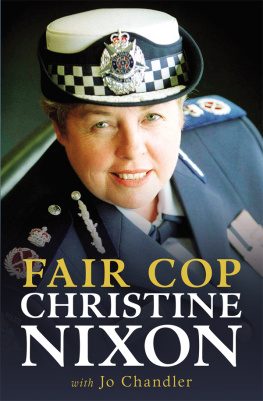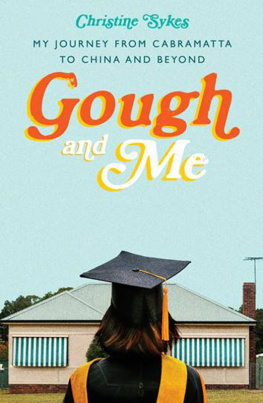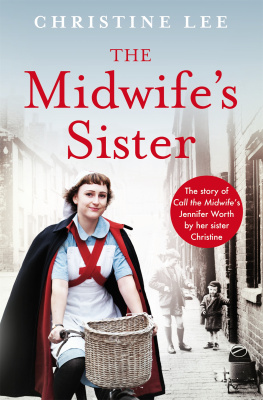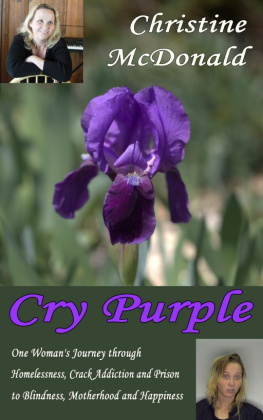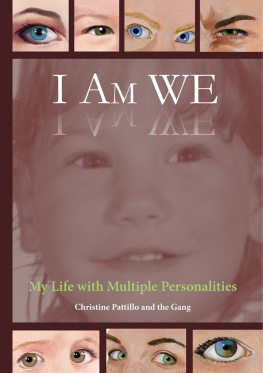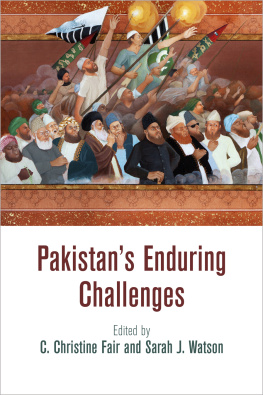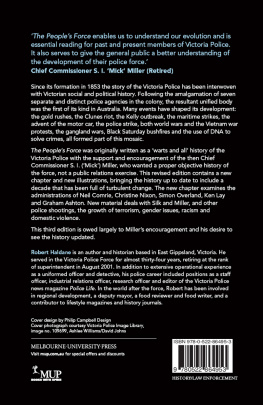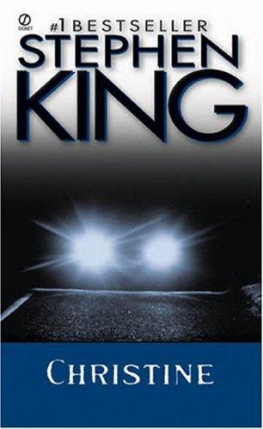This book has been a voyage of discovery for me. It has allowed me a chance to reflect on the wide range of influences that make me who I am.
I want to thank my family, friends, my parents, and particularly my husband for all the support and unstinting love.
To all those who have guided and supported me from New South Wales Police and Victoria Police and the broader community, thank you.
To Jo Chandler, a wonderful journalist, writer and a woman of great courage, thank you. To Melbourne University Publishing and my editor Cathy Smith, thank you for your guidance and patience.
Prologue
I am the child of a rare time. Raised in the lull between a world war and a social revolution, I was born into one reality and grew to inherit quite another.
Part of the demographic king tide of boomer babies who washed up across Sydneys northern beaches in the 1950s, I was raised in a place where the streets of the new suburbs were still unsealed, where the doors to the new houses lining them were unlocked, and where children were free to safely roam and play, watched over by a village. Where in the early years we didnt yet have a car or a television, but we did have a weekly visit from the dunny-cart man. Where we children were instilled with the values and manners of a vanishing eraat the risk of a cuff across the ear. We would later use these values to navigate our way across a shifting social landscape.
My crowded generation was wrapped safe in communities built around us by our war-damaged parents. My brothers and I would take the bus to the beach and stay there for the long summer, swimming fearlessly way out past the break at Manly, immersed in sunshine and salt water. Heading home hungry only as the sun sank to find Mum in the kitchen, tea on the table, Dad on his way home. At least that was the story in most households. Mine was a little different. My mother may have been at work, or my policeman father may have been at the scene of a crime, both scenarios unfamiliar over the paling fences. Someone peering through the curtains of our home may have mistaken what they saw for the 1950s suburban family idyll, but on any given night there might have been a cache of seized guns stored under my parents bed or photographs from bloodied crime scenes splayed on the kitchen table. Whenever my father was called out at night, no matter what hour, my mother would wave him off, just in case.
Our parents came of age in wartime; we graduated into an era of social and political upheaval. Street marchers opposed the fighting in Vietnam, and raised their voices against racial apartheid when the South African Springboks arrived to play rugby. Activism for Aboriginal recognition and rights stirred from Wave Hill to a historic referendum to a tent embassy in Canberra, where Labor gained power for the first time in a generation. As a man walked on the moon, women took huge strides on this planet. Gender roles were rewritten, and with the arrival of the contraceptive pill came the emergence of strong women capitalising on its possibility, claiming rights and opportunities their mothers could never have imagined. I caught and rode the wave of change forward, and no-one could have been more surprised than me to find myself being described, thirty years later, as the most powerful woman in the nation.
There was a moment, between the metamorphosis of the northern beaches girl into a young woman in police uniform, between the tide of one era retreating and the next sweeping in, when life might have taken a very different turn. I spent my eighteenth summer cruising the coast with my boyfriend and a surfboard, with no clear plan as to what might happen next. Id marry, I assumed. Id have a baby and then more, raise them in a house probably much like the one I grew up in. Unexcited by this picture but not resisting it either, Id almost reconciled myself to it when the moment passed. I had a powerful realisationthat I did not want this, at least not yet; and that I had the capacity to contrive a different future. And so, against my boyfriends wishes and despite my fathers objections, I joined the New South Wales Police Force and became Woman Police Constable Number 173.
My story from that moment tracks a period of social transition, following it across the landscape of changing public policy and private expectation. I delved into strategies to reinforce communities as the scaffolding of old neighbourhoods weakened; waded through the fraught territory of cultural reform within rigid, resistant, sometimes corrupt police ranks. Personal life was transforming too, shaped by the new choices and possibilities that the era brought for women. It was not easy, but it was challenging and fulfilling and ultimately I felt I had learned, achieved and contributed as much as I could have wished and more than I ever dreamed. Then, just as I thought the hard part was over, a new episode began, one that would test and confront me as nothing before.
I hadin November 2008announced my retirement from policing when the change came. The firestorm that ravaged Victoria on Black Saturday7 February 2009claimed 173 lives, and tragically and irreparably damaged countless others. The way in which it would redefine my life does not bear comparison to the grief and suffering endured by the survivors. Nonetheless, Black Saturday would change everything for me, too. I would be compelled by my conscience and by a royal commission to evaluate my capacity and calibre as a leader, the vocation at the core of my professional life and my identity. I would be called to account publicly for the management philosophies I had devoted my career to developing. I would spend many personal hours asking soul-searching questions of my own.
And something else happened. In the wake of the firestorm I was asked to undertake a job no-one could wantand I couldnt refuse. It was to head the mission to help communities rebuild and to recover from the ashes of the worst natural disaster in Australias recent history, the same disaster that summoned my professional performance into the spotlight. Even if I had been inclined to run and hide (never a part of my character), this was not an option. At the same time as my capacities were being questioned and critiqued, I was being asked to exercise them to the fullest in the interests of people I could not tolerate failing.
The journey had come full circle. I found myself where my parents had been fifty years earlier, constructing the hardware of community from the ground up, buoyed by the spirit of people who had been so painfully reminded of the value of the intangibles that hold society together. I was sustained and humbled by their generosity and their belief, validated by their capacity.
Along the way from the sandy Sydney beaches to the green of budding renewal in the Victorian ranges, my story encounters terrorism and tragedy, corruption and camaraderie, ambition and aspiration. I ride the rollercoaster of public life, from dizzy heights to pits of excruciating humility. Mindful of the stories you might want to hear, and the lessons I want to share, in these pages I will reflect on themes that have resonated, issues into which experience has allowed me insightlike crisis and courage, leadership and community, resilience and respect.
This is an entwined story of a personal and professional journey. Its about the pursuit of policing as a vocation, and the private and political adventures that invites. Its about recognising duty, embracing responsibility and facing adversity. Its about discovering that even when you might assume you have seen it all, there can still be much to learn. Its about the strength and capacity of community. In the end, its a story about how the choices we make as individuals can profoundly shape the society we live in, for good and for ill.

